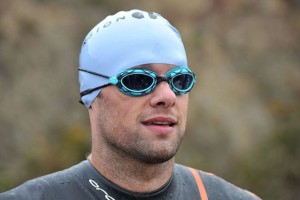
HEALTH-ADVICE television should come with a health warning. Science and showbiz are uneasy bedfellows and the fruit of their coupling can be a genetically engineered organism of dubious nutritional value. The tendency towards synthetic syrupiness becomes even more pronounced when programme-makers masquerade as experts on the chronically undisciplined discipline that is spiritual medicine.
Bressie’s Ironmind was the latest manifestation of the admirable crusade by Niall “Bressie” Breslin to raise awareness about mental health. The musician’s candour about his struggles with depression has helped change the national conversation. As so often happens in this country, however, an interesting voice has been overexposed until it sounds like the only voice that matters. Breslin is now treated by TV as an all-knowing guru. Documentaries with his name in the title have become a franchise. The programmes have grown slicker, but blander. His erstwhile fondness for plain-speaking and common sense has been supplanted by reliance on pep talk and psychobabble.
Athletic training was a propulsive factor in Breslin’s recovery, as he participated in a half ironman — a triathlon requiring competitors to run, cycle and swim long distances. Bressie’s Ironmind was an attempt to convert his personal experience into an ideology, a one-size fitness for all. The two-part documentary focused on four young people with varying mental-health challenges as they followed in Breslin’s running-shoeprints, training for a half ironman in Lanzarote. For the participants, the six months of physical preparations delivered the promised rewards. For the viewer, however, the chronicle of their exertions felt more like a glorified workout video.
A year ago, RTE2 brought us Bressie’s Teenage Kicks, a three-part documentary about Breslin’s mentorship of musically gifted youngsters from Moyross in Limerick. The show was more rooted in pop than pop psychology, but there was a mental-health subplot. Creative endeavour was presented as an antidote to the despair and self-destructiveness to which youngsters from deprived backgrounds are especially prone.
Teenage Kicks was messy and inconclusive, but also funny and surprising. Some of the teens to whom Breslin offered a helping hand responded by giving him the finger. There were bust-ups and walkouts. Breslin’s commitment to the venture prevailed but, on occasion, his patience snapped.
By contrast, Bressie’s Ironmind was formulaic to the point of dullness.
A positive outcome never seemed in doubt. Breslin has latterly become an evangelist for a variety of faddish doctrines, too, most notably mindfulness. Bressie’s Ironmind was overwhelmed by Breslin’s woolly thinking.
Shanks’s mare was the featured hobbyhorse on The Walk of Life, a Would You Believe Special about a walking pilgrimage by cancer survivors along the Camino, which has replaced the Indian hippie trail as the go-to place for spiritual tourists. Walks are being sold as the new prayers. As with the old prayers, however, there’s a great deal of aimless rambling.
Tuesday’s programme was fissured by irreconcilable differences between the heaven-centred and the earth-based. Individual pilgrims were given space
to recount their often tragic stories. But the attempt to weave their collective experiences into a sermon-ready morality tale was clumsily unconvincing. Once again, mindfulness raised its trendily coiffed head. Itchy feet are fashionable but wandering thoughts are not. However, the programme failed to explain why Spanish strolls are inherently more soulful than other forms of perambulation.
A brisk walk would certainly have been preferable to Operation Transportation — Highway to Kells, a would-be humorous documentary about the comedian Fred Cooke’s doomed efforts to pass his driving test. The film’s tone, like Cooke’s driving, was all over the place. One minute, he was inviting chuckles at the absurdity of his plight as a stand-up who has to cadge lifts from the headline acts he’s booked to support. The next, he was fuming over the insurance costs facing first-time drivers. Between the giggles and the indignation, Cooke assailed us with tedious statistics about Irish motoring habits.
Before long, mindful viewers will have been struck by some quasi-religious questions. Why in the name of God are we watching this? Who the hell commissioned it? An hour-long documentary about a comedian’s quest to master driving might work with a virtuoso storyteller. As a comic, however, Cooke is still wearing L-plates.
Some of the time-filling ploys to which he resorted were risibly self-contradictory. “I’m not into speed at all,” he declared. Moments later, he was in the passenger seat of a race car doing 170mph around Mondello Park — an endurance test presented as an essential session of aversion therapy. “We decided to get the need for speed out of my system,” he explained. Car-crash television.


